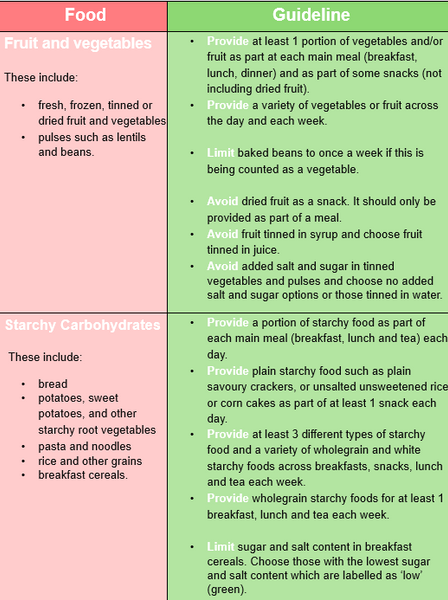
"Professional
childcare from
our cosy
home!"

Food and Nutrition
While we ask all new parents/guardians of Little Ladybirds read our nutritional policy in full and support us in implementing it, I have summarised the main points below.
-
We require all meals to be prepared and packaged appropriately by the parents/guardians and ensure that they are ready for the children to eat.
-
We do not store food in the fridge, reheat or prepare food, as we are not required to offer these services.
-
All food items should be cut up into thin quarters. We understand some children eat whole food at home (grapes, tomatoes etc.) however, for them to consume them in our setting, they need to be cut up according to the food standards agency recommendations.
-
The children have a dedicated 40 minutes for lunch, anything uneaten after this time has passed will be sent home with the children.
-
We are a Nut and Fish free setting due to allergies and intolerances.
-
We encourage an order of eating as follows:
- Main Food (usually a carbohydrate such as sandwich, pasta etc.)
- Fruit
- Dairy (yogurt, cheese etc.)
- Any other items -
Children will not be made to eat any foods they do not like or want.
-
Using nutritional checking apps, we accept any foods with full green nutritional labels.
-
We will avoid any sugary processed foods.
-
Please ensure all new foods are tried at home with no adverse affects to the children before being supplied in our setting.
-
The only drinks that should be offered are Milk or Water. Squash and flavored water are to be avoided.
In May 2025, the government released a new guidance on nutrition.
Government Nutrition Policy
We understand that children can be very particular with the foods they eat and of course its common for them to prefer the sweeter options - who can blame them?!
However, it is part of our role as Early Years Practitioners to encourage healthy, nutritional foods to be eaten.
At least one in eight children are classed as overweight or obese between the ages of two and ten. (according to NHS). This is important to change, as obesity can cause lots of additional problems for children.
A balanced diet is key to assist in childhood development, children need the energy provided from good regular meals to grow, explore and play!
We are strongly advised to follow the guidance set out for us by the government, so we have updated our food and nutrition policy to reflect this new guidance.

An example Eat Well Plate for children and toddlers.
Protein
Fruit & Veg
Grains / Carbs
Dairy
TOFU
BEEF
PORK
CHICKEN
BEANS
EGG
BANANAS
BROCCOLI
STRAWBERRIES
CORGETTE
PEAS
YOGURT
CHEESE
MILK
WRAPS
PASTA
BREAD
CEREALS
Extracted from the Government guidance document:
There is additional information on the document itself however, I have exampled details relevent to our setting.
-
Provide – Where the guidelines advise that a food or drink should be provided use these to plan your meals, drinks and snacks.
-
Limit – Where the guidelines advise that foods should be limited, these should be restricted as detailed in the specific guideline. This will help to decrease the
amount of sugar, salt and saturated fat in children’s diets and increase the variety of foods they are offered.
-
Avoid – Where the guidelines advise that a food or drink should be avoided, these should not be provided as part of any meals, drinks or snacks.


